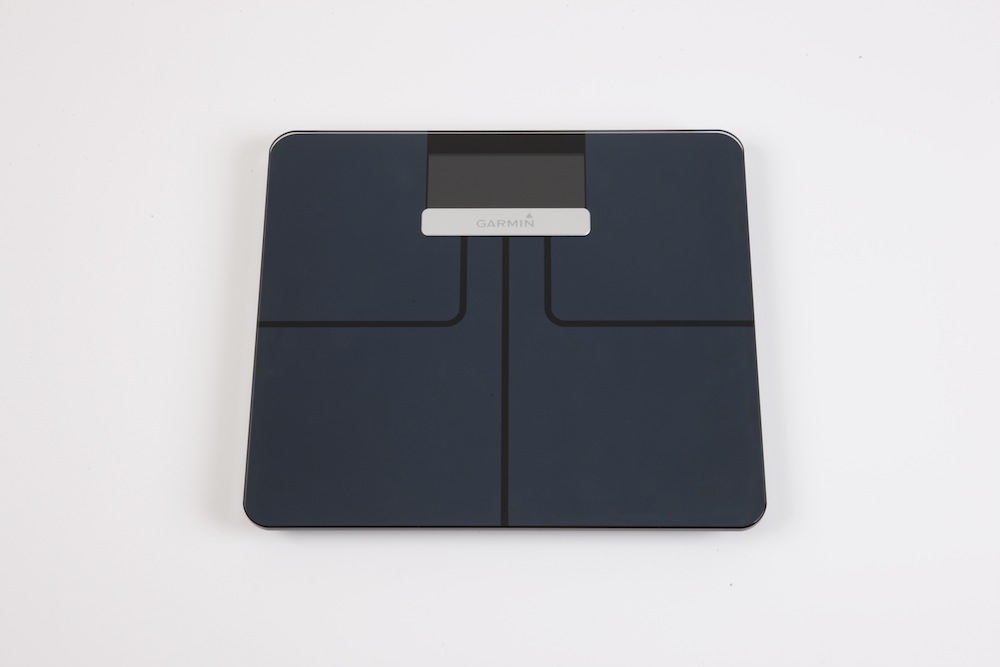Garmin Index Smart Scale review
Perhaps best known for its GPS computers, Garmin also makes a smart scale. The Garmin Index Smart Scale is designed to wirelessly send your weight, muscle mass and body fat percentages

On paper the Garmin Index Smart Scale looks great. Unfortunately it has a number of issues, mainly associated with the software, and I wouldn't trust the body fat calculation.
-
+
Wirelessly sends weight measurement to a smartphone or app
-
+
Convenient when it works
-
-
Set-up doesn't always work
-
-
Software issues
-
-
Sporadic connectivity
-
-
Inaccurate fat measurement
You can trust Cycling Weekly.
The Garmin Index Smart Scale, as the price suggests, is more than just a bathroom scale. It claims to be able to measure your weight, body mass index, body composition (including fat percentage), muscle mass and more.
Once it has measured this, the Garmin Index Smart Scale can use Wi-Fi connectivity to beam these results to Garmin Connect and into your smartphone. What’s more, the scale is able to track 16 different users and has a battery life of around nine months.
Sound good? I certainly thought so and was keen to test it out.
In theory, this kind of connectivity is a really useful, convenient tool for charting your weight loss or gain over time. Unfortunately, out of the box I immediately encountered issues with the Garmin Index Smart Scale.
Firstly setting it up was less than straightforward, as despite the simple instructions it inexplicably wouldn’t connect to my Wi-Fi. It connected to my phone via Bluetooth easily enough, but the Garmin Index Smart Scale will only work when it can connect to both Wi-Fi and Bluetooth – a major inconvenience.
>>> Garmin Edge computers: a complete buyer's guide
Eventually, by using a different modem, the scale did connect to my Wi-Fi. If you are using a smart scale, it is likely that you will want to also use third-party fitness and nutrition apps such as My Fitnesss Pal.
The latest race content, interviews, features, reviews and expert buying guides, direct to your inbox!
Disappointingly, I experienced issues trying to sync data from Garmin Connect to My Fitness Pal. Sometimes it worked, sometimes it didn't and this was annoying. Despite updating both apps, deleting them and reinstalling, I was never able to get to the bottom of this.
Watch: Six weight loss tips for cyclists
The weight measurement appeared reasonably accurate and was consistent with other scales I own. I found it to be +/– 0.4kg. However, when weighing, the Garmin Index Smart Scale will only do one measurement with body analysis a day. This is annoying as it prevents you tracking yourself pre and post workout.
Furthermore, my housemate once stepped on the scale before me, which then counted as my daily measurement. Imagine my momentary panic when this automatically beamed into my phone and told me I was now 10kg heavier than the day before.
You can switch between different users, but this is not as easy to do and could be an issue if you wanted to use the scales for something like a training camp.
Once up and running I decided to put the body composition measurement to test. According to the Garmin Index Smart Scale I had a flattering seven per cent body fat, but a much more accurate Bod Pod measurement suggested 18 per cent. Bod Pods work via air displacement and are much more accurate, allowing me to say with some confidence, that the body composition metrics on the Garmin Index Smart Scale are not accurate.
Furthermore, it appears I am not alone in my experiences, with Garmin forums littered with comments relating to poor experiences with this product. Overall, the software on this product needs improvement and the body fat reading should be taken with more than a pinch of salt.
For more information visit the Garmin website.
Oliver Bridgewood - no, Doctor Oliver Bridgewood - is a PhD Chemist who discovered a love of cycling. He enjoys racing time trials, hill climbs, road races and criteriums. During his time at Cycling Weekly, he worked predominantly within the tech team, also utilising his science background to produce insightful fitness articles, before moving to an entirely video-focused role heading up the Cycling Weekly YouTube channel, where his feature-length documentary 'Project 49' was his crowning glory.